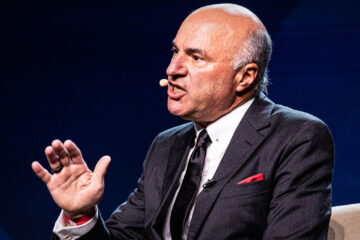Twitter is desperate for revenue. It has a $13 billion debt burden, but hasn’t showed a profit for eight of the last 10 years.
If Twitter is going to make it as a successful company, it will almost surely have to increase its advertising.
Advertising now accounts for 90% of the company’s revenue, and that’s unlikely to change much anytime soon. Chief Executive Elon Musk’s initial efforts to build a subscription service have failed.
But advertising at this point is going backward. General Mills, Pfizer and Chipotle Mexican Grill are part of the parade of companies that have dropped or paused their ads on Twitter, as they seek to disassociate themselves from the extremist content flooding the company’s platform.
Twitter is desperate for revenue. It has a $13 billion debt burden as part of Musk’s takeover, yet hasn’t turned a profit for eight of the last 10 years.
Musk hopes to cut costs by $1 billion per year on infrastructure and estimated that the first round of layoffs will save Twitter $400 million a year. But that won’t be enough to pay back the debt and retain profits.
Advertising Incentives
So it’s no wonder that Twitter has now offered incentives for advertisers to boost their spending on Twitter, as reported by The Wall Street Journal.
One incentive has Twitter matching companies’ ad spending. That would allow advertisers who increase their spending by at least $500,000 to have that spending matched with a “100% value add,” up to a $1 million cap, according to an e-mail sent by Twitter to ad agencies and viewed by The Journal.
Presumably, a “100% value add” means the advertiser would be able to spend double the amount of its increase on ads. But it’s not clear.
In any case, Musk seems to flail from one idea to another. He first offered subscribers a check-mark verification for $7.99. But that bombed, with fake tweets flowing like water. So Musk halted the program. He has pushed back the date for introduction of a new subscription service to Dec. 2.
At this point it’s hard to see how Musk is going to attract meaningful revenue for subscriptions. He’s alienated anyone whose politics are left of center and befuddled most others.
James Gorman is a Musk Fan
One luminary who clearly supports Musk is Morgan Stanley Chief Executive James Gorman. “I wouldn’t bet against Elon Musk,” Gorman said at a conference, as cited by Bloomberg. He called Twitter “a great company” and Musk “an extraordinary executive.”
Gorman better hope that’s right, because Morgan Stanley already has bet on Musk. It provided $3.5 billion of the $13 billion of loans that Musk took out to buy Twitter.
You don’t want to count out someone who has had major successes founding and running companies, including PayPal and Tesla. But so far at Twitter, Musk’s performance looks like a flop.


